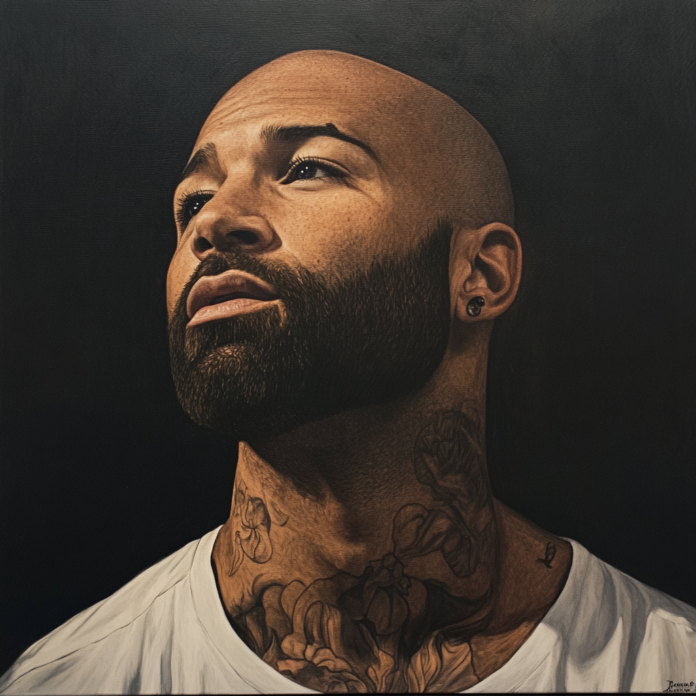In a recent segment, Joe Budden shared his thoughts on the evolving landscape of the music industry, particularly in light of TikTok’s new initiatives. With the platform’s announcement regarding the introduction of a watermarked segment for artists to premiere their music, Budden argues that this marks a significant shift toward a tech-centric approach in the music world. As we delve into Budden’s insights, it becomes clear that the intersection of technology, social media, and traditional music distribution is reshaping the industry in profound ways.
The Rise of TikTok and Its Impact on Music
TikTok has emerged as a dominant force in shaping music trends and launching new artists. Budden emphasizes that the platform’s decision to allow artists to showcase their music before it hits streaming services signals a new era where tech companies play a pivotal role in music promotion. This development highlights how social media platforms are not just venues for music consumption but are becoming essential tools for artists to connect with their audiences directly.
Budden’s commentary reflects a broader trend where artists increasingly rely on platforms like TikTok to gain visibility and traction. The rise of viral challenges and snippets of songs becoming popular on social media has changed how music is marketed and consumed. As artists leverage these platforms, the traditional roles of record labels and radio are being challenged, prompting a reevaluation of how music is disseminated and promoted.
The Collaboration Between Labels and Tech Companies
A significant point raised by Budden is the necessity for collaboration between record labels and tech companies. Despite the competitive nature of both sectors, he notes that they must work in concert due to licensing agreements and the leverage that labels hold. This partnership suggests a future where the music industry may become increasingly intertwined with technology, as both sides recognize the benefits of collaboration in reaching broader audiences.
The relationship between artists, labels, and tech platforms is evolving. Labels traditionally held the power in music distribution, but as tech companies gain more influence over how music is consumed, artists may find themselves navigating a more complex landscape. This shift could lead to new opportunities for independent artists who can utilize these platforms without the constraints of traditional label agreements.
Joe Budden: A Multifaceted Career and Cultural Commentary
Joe Budden, born on August 31, 1980, in Harlem, New York City, has made a name for himself not only as a rapper but also as a prominent cultural commentator and media personality. His debut album, “Joe Budden,” released in 2003, featured the hit single “Pump It Up,” which catapulted him into the mainstream music scene. However, Budden’s career trajectory took a significant turn when he transitioned into podcasting.
In 2015, he launched “The Joe Budden Podcast,” which quickly became popular for its candid discussions on hip-hop culture, current events, and relationships. Budden’s unfiltered style and willingness to tackle controversial topics have garnered him a loyal following. His insights into the music industry, combined with his personal experiences, have made him a respected voice among fans and aspiring artists alike.
The Role of Podcasting in Shaping Music Discourse
Budden’s success in podcasting has allowed him to engage with his audience on a deeper level. Through platforms like Spotify and YouTube, he has built a community where listeners can discuss and dissect the latest trends in music and culture. His podcast serves as a platform for artists to share their stories and experiences, further blurring the lines between traditional media and social media.
As the music industry continues to evolve, Budden’s podcast remains a vital space for discussion and critique. His ability to articulate the challenges and opportunities facing artists today resonates with many, particularly as they navigate the complexities of the digital age.
The Future of Music Distribution and Consumption
Looking ahead, the music industry is poised for further transformation. With the rise of AI, blockchain technology, and other innovations, artists may find new ways to distribute their music and engage with fans. The potential for direct-to-fan sales and decentralized platforms could disrupt traditional revenue models, allowing artists to retain more control over their work.
However, as Budden points out, the collaboration between tech companies and labels will likely shape the future landscape. This partnership could lead to new marketing strategies and promotional tools that empower artists while also benefiting the platforms involved.
Conclusion: Embracing Change in the Music Industry
Joe Budden’s insights into the music industry’s shift toward technology and social media underscore the need for artists to adapt to an ever-changing landscape. As platforms like TikTok redefine how music is consumed and promoted, the traditional roles of labels and radio may continue to diminish. Budden’s multifaceted career serves as a testament to the importance of embracing change and leveraging new opportunities in the digital age.
As we move further into 2025, artists, labels, and tech companies must navigate this evolving terrain together, recognizing that collaboration and innovation will be key to thriving in the modern music industry. Joe Budden’s voice remains a crucial part of this conversation, offering valuable perspectives that resonate with both industry insiders and fans alike.

























